Boiler Installation Cost
- The average boiler installation cost is around £2,400 in the UK.
- It typically takes 1 day for a heating engineer to install a new boiler.
- How much a new boiler costs in the UK, the labour cost to fit a boiler, and what impacts the prices you're quoted in 2026.
- How long the job usually takes, what's involved in replacing a boiler, and additional tasks you might want to schedule for the same time.
- How to find and hire a local heating engineer.

£2,400
Table of Contents
- How Much is a New Boiler Installation?
- Factors That Impact Boiler Installation Costs
- Additional Boiler Installation Costs
- How Much to Fit a Boiler? (Labour Only)
- How Much Is a New Boiler? (Supply Only)
- New Boiler Grants and Financial Help
- Signs You Need a New Boiler Installed
- What's Involved in a New Boiler Installation?
- What Qualifications Do You Need For a Boiler Installation?
- Checklist: Getting a New Boiler Installed in 2026
- FAQs
How Much is a New Boiler Installation?
The average boiler installation cost across the UK is around £2,400. This includes the cost of a new boiler, as well as the boiler fitting cost.
Boiler replacement costs you're quoted will mainly depend on the type of boiler you're installing, whether you're moving the boiler at the same time or need new pipework, and where you're located in the UK.
Excluding supply costs, and in standard cases, you should expect the cost of boiler installation to be around £1,000. However, prices you're quoted for labour could be as low as £600 or as high as £1,700.
Gas combi boiler installation, along with new central heating costs typically range between £1,200 and £4,000. This remains the most commonly installed type of boiler in the UK.
Homeowners who get quotes for the fitting of a mid-range gas combi boiler will land in the middle of this range — in the £1,800 to £2,800 bracket. You can replace a gas combi boiler for less than this, but only if it's a simple swap-out for a basic boiler model.
Keep reading for an overview of how much all the different types of boilers cost to install in 2026.
I'd like to have a smart, hi-tech boiler fitted. Are there any specific requirements to accommodate this type of installation?
Boiler Installation Prices
The table below provides an overview of typical new boiler installation costs in the UK.
| Boiler Type | Average Cost (Supply + Installation) |
|---|---|
| Combi Boiler | £1,200 – £4,000 |
| System Boiler | £1,750 – £4,500 |
| Conventional Boiler | £1,100 – £3,400 |
| Electric Boiler | £2,300 – £4,600 |
| Biomass Boiler | £8,400 – £16,200 |
Want to get a better picture of what to expect?
Use MyJobQuote to get free, no obligation quotes from heating engineers near you. It's fast, easy, and connects you with local tradespeople.
Factors That Impact Boiler Installation Costs
Boiler installation costs are determined by:
- The boiler's brand — Premium boiler brands like Viessmann, Vaillant, and Worcester Bosch will typically charge more than mid-range boiler brands like Baxi and Ideal.
- Your home's location — Homes in London or the surrounding areas can cost £250 to £700 more than those living in the north of the UK due to increased demand.
- Replacing boiler like-for-like — Swapping your old combi boiler for a new combi boiler will have significantly lower labour costs than if you were to change fuel type.
- Replacing boiler with a different fuel type — New pipework, fuel lines, upgrading or removing water tanks, electrical and flue work will all bump up your installation costs if you're changing your boiler's fuel type.
- National or local heating engineer — Opting for a local heating engineer will carry lower labour costs than if you were to choose a national installation company, as their overheads will be lower, saving you between £500 to £1,500 in labour costs.
Additional Boiler Installation Costs
Replacing your boiler doesn't mean you need to overhaul your home's entire heating system.
Depending on your goals, below are some points to consider, although costs may vary in areas such as London and the South East:
If You Want To Protect Your System
- Add a magnetic filter to your boiler to stop future debris buildup. These cost around £120 to £250.
- Aim for an annual boiler service to detect problems early. The cost to get your boiler serviced on average is around £100.
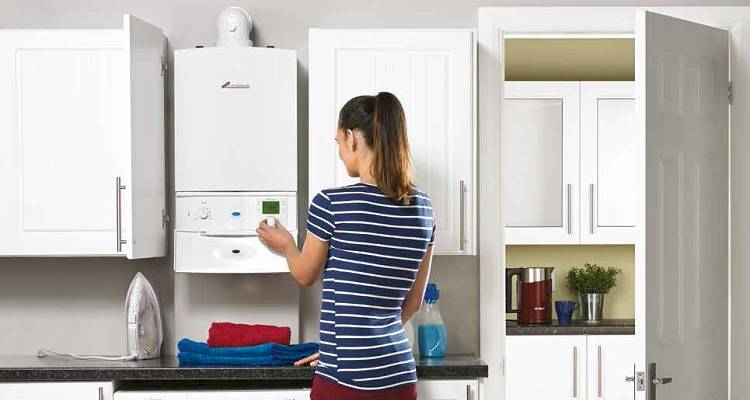
If You Want To Boost Your Energy Efficiency
- Smart thermostats offer complete control over your home's heating via your phone, and can learn your routine to save on energy costs when you're not home. Installing a smart thermostat costs £265.
- Installing thermostatic radiator valves (TRVs) lets you set your radiators to different temperatures depending on what room they're in, so you can turn them down in rooms you don't use often to reduce your energy consumption. They typically cost around £70 to £140 per radiator.
If You Want To Upgrade Your Heating Setup
- If you've had your radiators bled and your system flushed and you're still experiencing cold spots and poor heat distribution, it's time to replace them. To remove and replace a radiator costs £200 per radiator.
- To keep your space tidy, you may want to box in your new boiler to streamline your room. Boxing in your boiler costs £335.
- Alternatively, you may decide upon a boiler relocation instead, costing (on average) around £750 - although this can vary greatly depending on elements such as pipework, flue, and the location.
How Much to Fit a Boiler? (Labour Only)
The average cost of labour when getting a new boiler installed is between £600 and £1,700.
However, these costs are dependent on the following:
- If you're having a like-for-like boiler replacement (e.g., same type of boiler, in the same location), or a new fuel type installed
- The ease of access to the current boiler position
- If you want the new boiler installed in a different location
The bottom line: the more straightforward the job, the less you'll pay in labour.
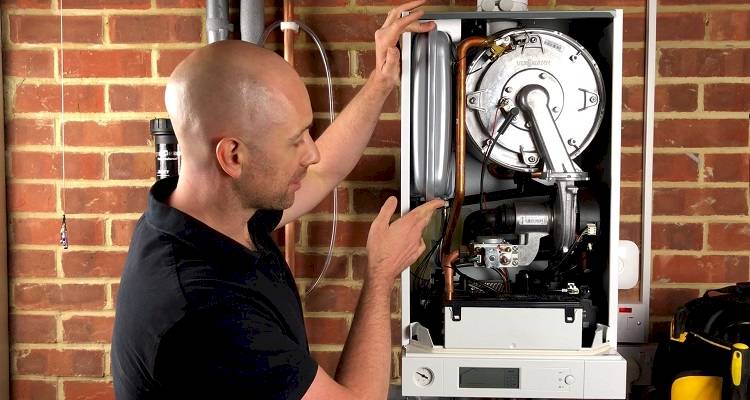
How much does a combi boiler installation cost (labour only)? Could I also get a price for replacing 11 radiators (4 doubles, supply and labour)?
For the radiators, I would say it's a day's work (if all went well), so between £300 and £400."
How Much Is a New Boiler? (Supply Only)
Boilers range in price depending on the type of boiler and the manufacturer.
| Boiler Type | Supply Cost |
|---|---|
| Combi Boiler | £600 - £2,300 |
| System Boiler | £1,150 – £2,800 |
| Conventional Boiler | £500 – £1,700 |
| Electric Boiler | £1,700 - £2,900 |
| Biomass Boiler | £7,800 - £14,500 |
Let's look at the most common boiler types in detail:
Combi Boiler Cost
A combi boiler heats water on demand for your central heating and hot water system, without the need for a separate hot water tank. When it comes to installing a new boiler, a combi-boiler that runs off gas is the most common option within the UK. A combi boiler is efficient and compact, and takes water directly from the mains.

Although gas is most common, combi boiler can also run on electricity, and the unit is usually small enough to fit into a cupboard. Typically, a combi boiler costs £600 to £2,300 for supply only, with gas running costs at around 10p per kWh (as per the 2025 Ofgem price cap).
Pros
- ✔ Efficient and compact design
- ✔ Largely available throughout the UK
- ✔ Hot water on demand
- ✔ Connected to mains, so no need for a separate water tank
- ✔ When using gas, provides the cheapest fuel per unit
Cons
- ✖ Requires high water pressure
- ✖ Might not be suitable for very large homes with high demand
- ✖ Might not work if multiple showers or taps are being used at the same time
- ✖ Not an option for homes that are located off-grid
- ✖ Gas options use fossil fuels to operate
System Boiler Cost
A system boiler heats water straight from the water mains, similar to a combi boiler. This type of boiler doesn't need a cold water tank, and allows for more than one hot water outlet.
This also allows the system to provide hot water through multiple taps without any loss of water pressure. The supply cost of a system boiler is between £1,150 to £2,800.
Pros
- ✔ Doesn’t require a cold water tank
- ✔ Good water pressure
- ✔ Useful for homes with more than one bathroom
Cons
- ✖ Requires a separate hot water cylinder
- ✖ More space required compared to a combi boiler
- ✖ Hot water can run out
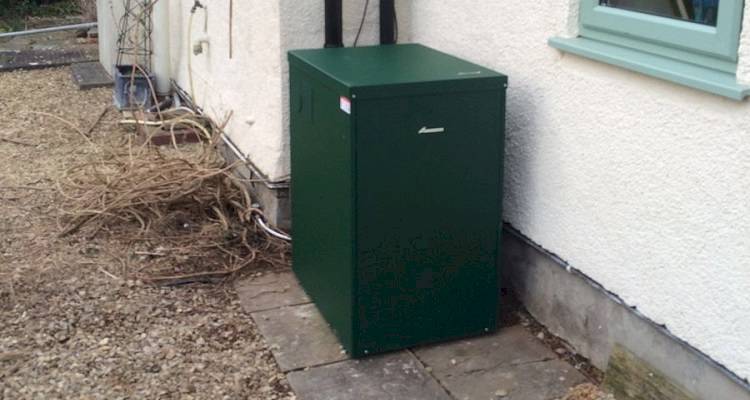
Conventional Boiler Cost
Conventional boilers are perfect for larger homes and are composed of a cold water storage tank (often fitted into the loft), along with a hot water cylinder, and are usually either a gas boiler or oil.
The cost of installing an oil boiler is around £2,450 (not including fuel prices) although oil-fired boilers are often more commonly found in off-grid properties.
The supply cost of a conventional boiler is between £500 to £1,700. Oil running costs are around 9p to 11p per kWh (as of 2025).
Pros
- ✔ Cheaper per kWh than electricity
- ✔ Great for heating larger homes
- ✔ Good water pressure
- ✔ Works well even when multiple taps are used at the same time
- ✔ Gas boilers are a suitable alternative for off-grid properties
Cons
- ✖ Requires two water cylinders (a hot water cylinder and a cold water tank)
- ✖ Can take up a lot of room
- ✖ More disruptive and invasive to install than other boiler types
- ✖ Fuel for an oil boiler needs to be ordered in advance
Electric Boiler Cost
An electric boiler are less common than gas, but a great option for a new boiler as they are energy-efficient and environmentally friendly, running at almost 100% efficiency.
Electric boilers cost around £1,700 to £2,900 for supply only, with running costs of around 29p per kWh (as per the 2025 Ofgem price cap).
Pros
- ✔ Almost 100% efficient
- ✔ Compact design
- ✔ Produces heat without any noise
- ✔ No flue required
Cons
- ✖ May need a hot water cylinder
- ✖ Not suitable for large households with high demand
- ✖ Running costs are typically higher than gas
Biomass Boiler Cost
A biomass boiler is an environmentally-friendly option for a new boiler.
They work by burning wood to produce the energy required to heat your water. This is usually done with wood chips, pellets, or logs.
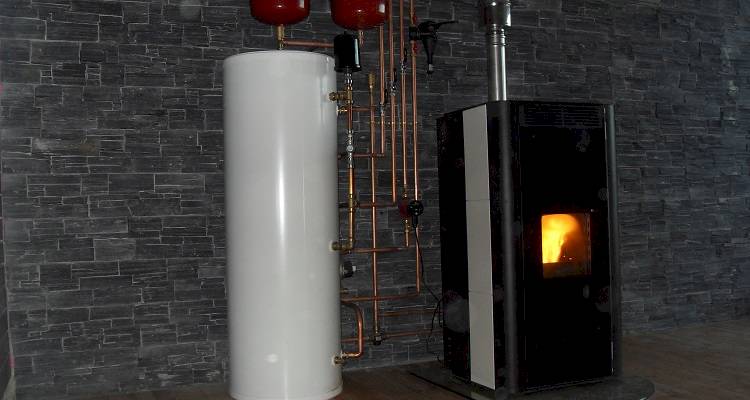
A biomass boiler is great for the environment in comparison to other models, while also being energy efficient, can potentially contribute to a significant saving on your energy bills.
A biomass boiler costs around £7,800 to £14,500 with running costs at time of writing around 7p to 9p per kWh.
Pros
- ✔ Environmentally-friendly
- ✔ Useful for off-grid homes
- ✔ Uses renewable, low-carbon fuel
- ✔ Low running costs
Cons
- ✖ Expensive upfront cost
- ✖ Requires bulky water tank
- ✖ High level of maintenance required
How often should a biomass boiler be serviced?
New Boiler Grants and Financial Help
There are several schemes in the UK that could help reduce the cost of installing a new boiler that are worth looking into. Below are a few details related to each one:
- Boiler Upgrade Scheme (BUS) — Provides financial support towards the installation of low-carbon heating systems, this also includes help with the cost of heat pumps.
- ECO4 (Energy Company Obligation) — Helps eligible households and homeowners improve their property's energy efficiency, including replacing old boilers by installing one that is more efficient.
- Local authority grants — Check with your local council, as they may also offer grants or loans for work relating to improving energy efficiency, which may include a boiler replacement scheme.
Eligibility criteria applies to each of the above schemes, so it's worth checking your circumstances before planning to install a new boiler as you may be able to save some money along the way.
Signs You Need a New Boiler Installed
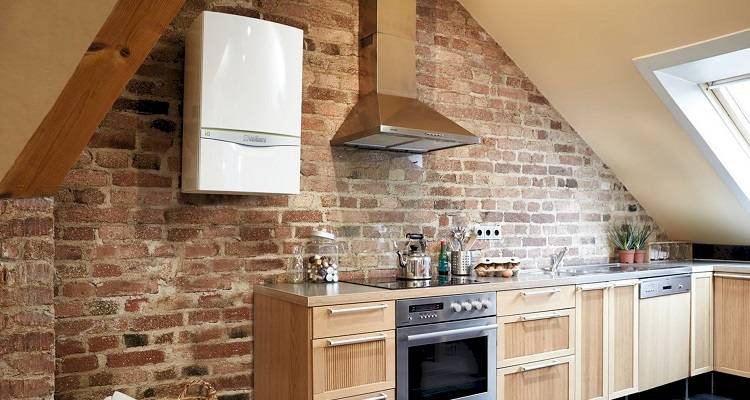
Is it time to replace your boiler?
Here are the tell-tale signs to look out for that signal your current boiler is reaching the end of its life:
- Odd noises — If you're hearing popping, knocking, or hissing noises while your boiler's in use, it might be a sign that the internal components are failing.
- Frequent repairs — Your boiler should be serviced once a year, but if you're finding yourself booking additional repair services each year, it can be a sign that it needs replacing with a newer model.
- Leaking system — Repeated leaks or loss of pressure can indicate a problem with your boiler or heating system. These issues should always be investigated by a qualified engineer and repaired or replaced if necessary to ensure safe and efficient operation.
- Temperature fluctuations — If you've noticed your water takes a long time to heat up or switches between hot and cold when running, it can be an indicator that something's wrong with your boiler.
- Boiler age — If your boiler is over 15 years old, it's time to replace it. Doing so can potentially save you an estimated £250 to £350 per year on your energy bills.
- Planning an extension — You should add a new boiler to your house extension costs if you're planning on extending your home, as your existing boiler may be too small to heat your new square footage adequately.
My water supply is hot when the tap is opened, but after a short time, the water runs cold - what's the problem?
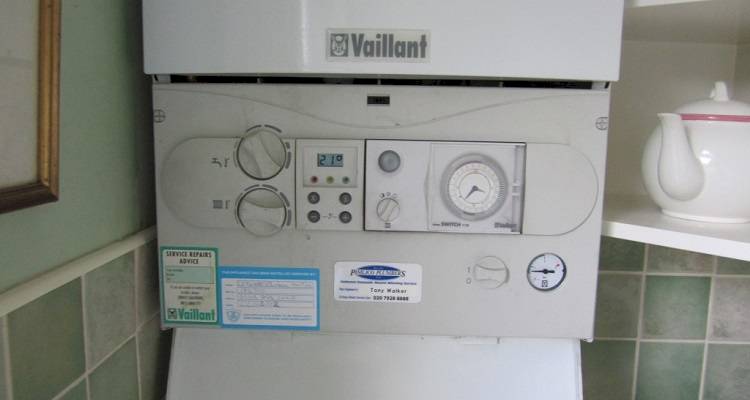
What's Involved in a New Boiler Installation?
You shouldn't ever install a new boiler as a DIY project as the consequences of poor boiler installation can be fatal, and it isn't something you should try and cut corners on purely to save time and money.
Although technically you could potentially carry out some elements or preparation work yourself, there are a number of strict rules and regulations surrounding installing a new boiler. As such, it's always best to search around for a qualified professional. By using MyJobQuote, you can find local heating engineers in your area, whereby it's recommended to then request at least three separate quotes before committing.
Once you've decided you need a boiler replacement and have found a suitable heating engineer, here's a breakdown of what to expect (based on the steps involved for installing a standard gas combi boiler):
Before the Job
- Initial assessment — The engineer will check your existing system and boiler location, assessing any potential complications before work begins. If any pipework changes or upgrades are needed, then your engineer will need to plan these in advance.
During the Job
- Removing the old boiler — The time this takes will vary depending on the existing system and the complexity of the job.
- Prepare the system — The engineer will flush and clean the system to remove debris. Any necessary pipework changes or upgrades will also be carried out, particularly if the boiler location is changing.
- Install the new boiler — The new boiler is then fitted into place, along with any recommended protective extras, such as a system filter, filling loop, or magnetic filter.
After the Job
- Final checks — The engineer will run the boiler and system to ensure everything is working correctly, making any tweaks if and where required.
- Instructions — As well as leaving you with an instruction manual, there should be time to demonstrate how to use the controls and carry out any basic maintenance such as adjusting the pressure and bleeding radiators where appropriate.
- Register the boiler — The final step is registering the boiler with the manufacturer so that your product guarantee is valid, this then provides cover in the event any problems arise during the warranty period.
Do most heating engineers perform a power flush per standard when installing new boilers?
What Qualifications Do You Need For a Boiler Installation?
You need to hire a heating engineer who is qualified to work with the type of boiler you're looking to get installed.
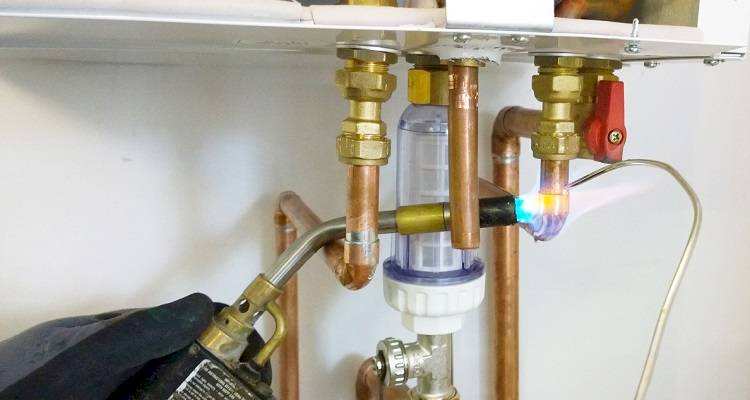
Depending on the type of boiler you're having installed, your heating engineer will need different certifications:
- Gas boiler installers must be Gas Safe registered, a legal requirement for anyone working with gas appliances in the UK.
- Electric boiler installers need to be qualified electricians, ideally NICEIC registered.
- Oil boiler installers must be OFTEC registered.
- Biomass boiler installers need to be HETAS registered.
Checklist: Getting a New Boiler Installed in 2026
There are a few things you will need to consider before hiring someone to install a new boiler for you - here's what we suggest:
- Have you received at least 3 quotes? Find different heating engineers in your area via MyJobQuote and request at least three separate quotes, at no obligation to go ahead, so can compare prices.
- Have they provided a detailed breakdown? Ask for the quote to be itemised, so you see exactly what's included, while keeping an eye out for any hidden costs that may be involved.
- Do they hold suitable qualifications? As well as having the right hands-on experience, make sure your heating engineer's qualifications match your fuel type (for example, gas boilers legally require a Gas Safe registered engineer).
- Do they have positive feedback? Check for online reviews such as their MyJobQuote profile and read what any recent customers have to say about the quality of work and the tradesmen involved.
- Does your new boiler installation come with a warranty? Any reputable company will issue a warranty or guarantee on their work, however, you should always have this in writing in the event of any dispute.
- What insurance does your tradesman have? The majority of companies and individuals will hold at least Public Insurance Liability in the event of personal injury or accidental damage.










